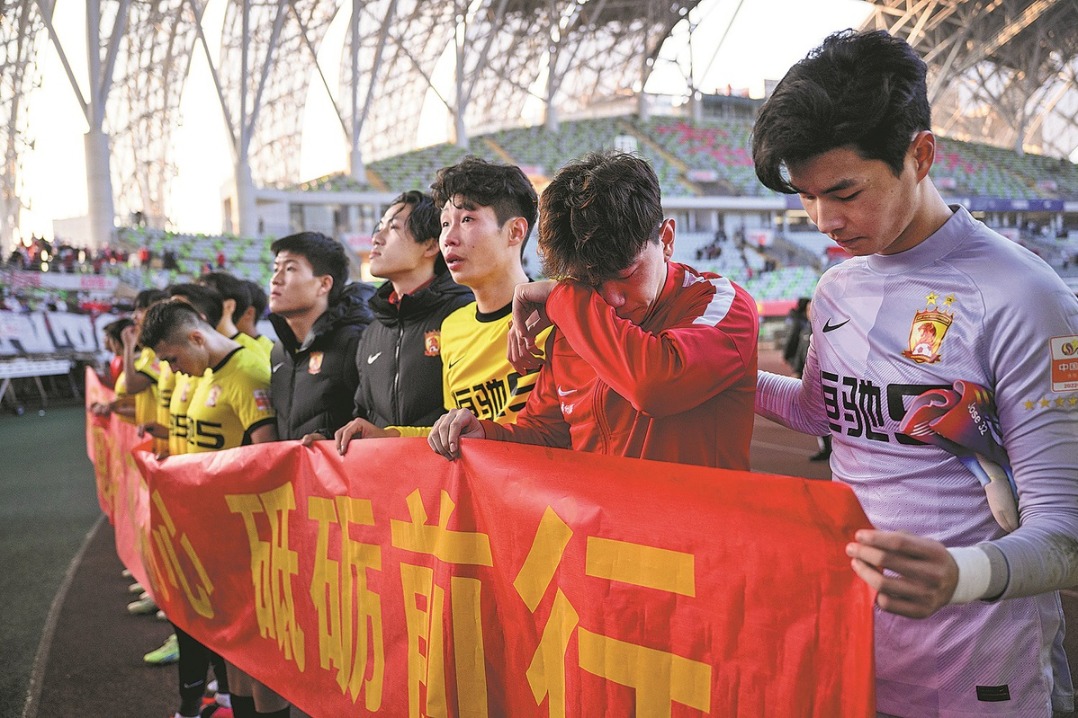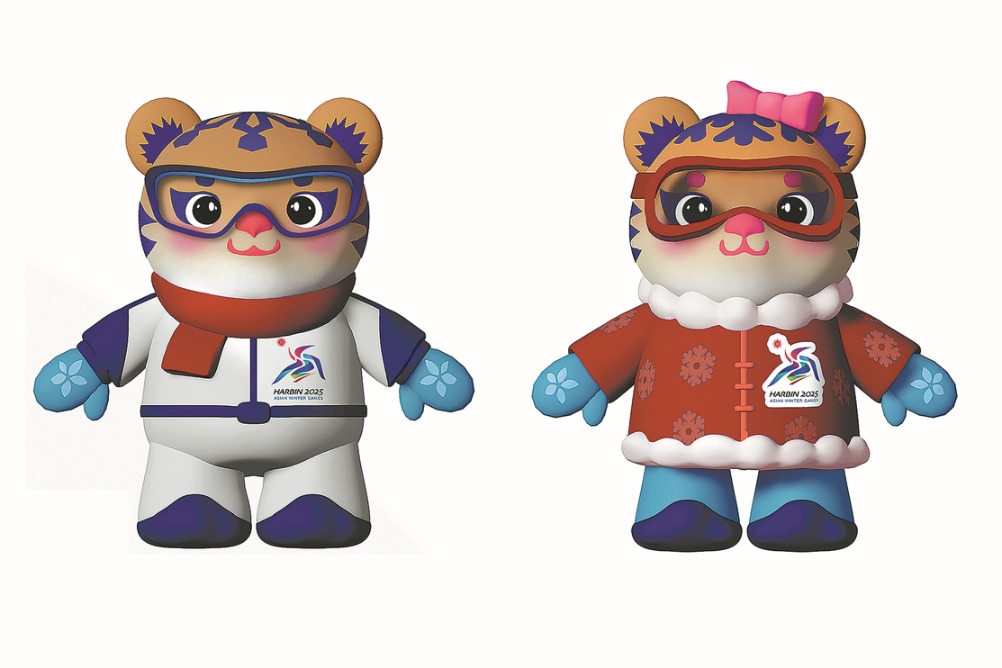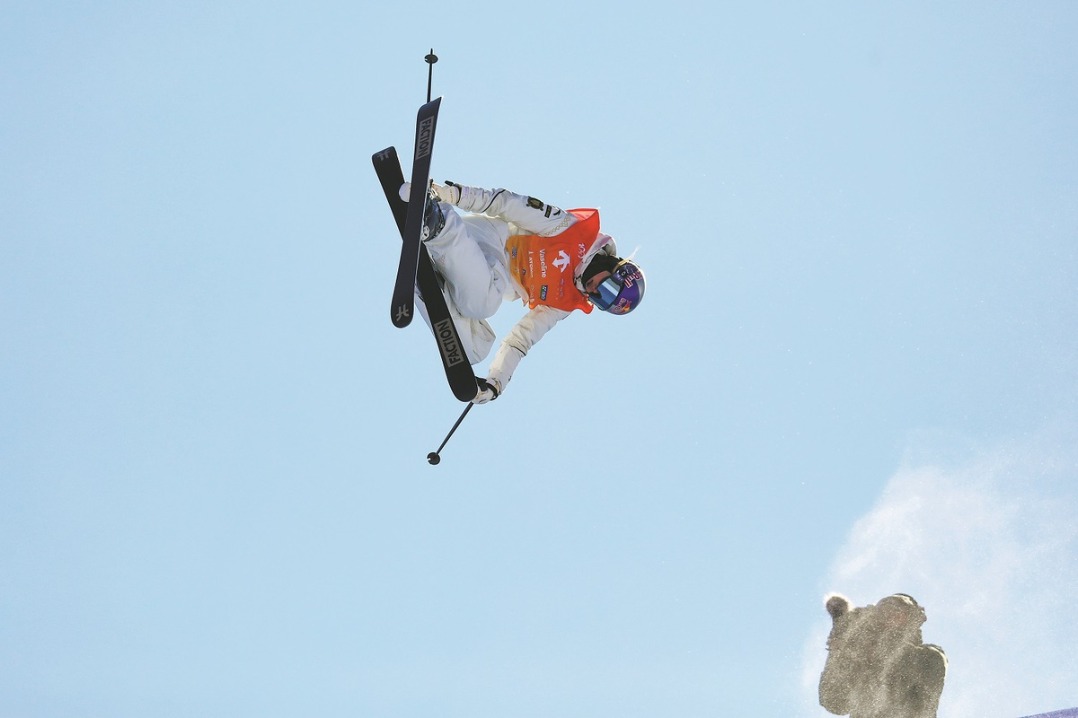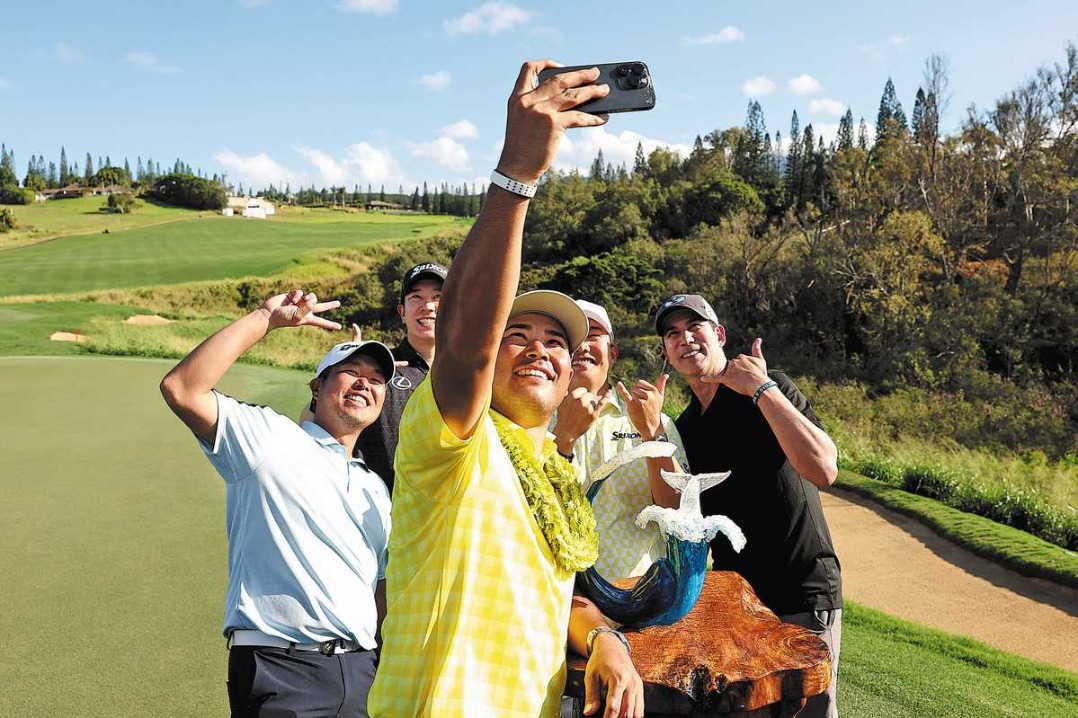A different point of focus

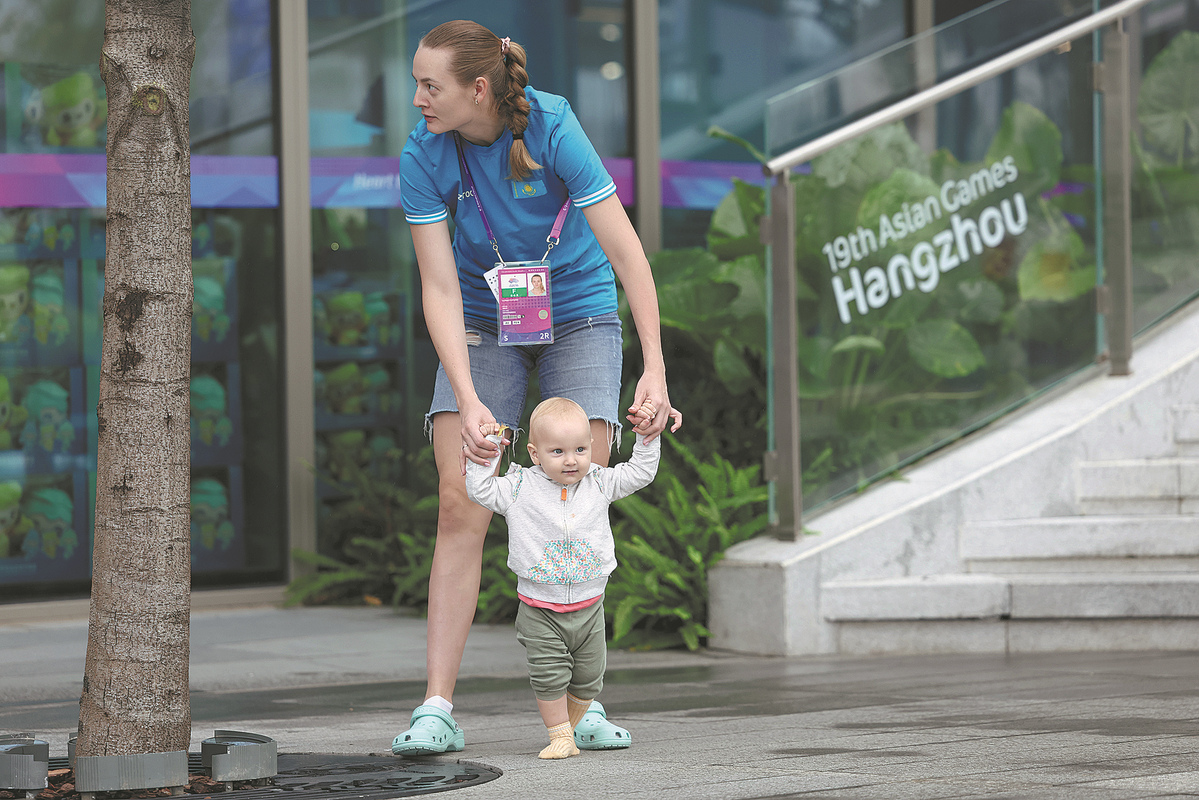
Kazakh fencer balances grueling schedule with challenges of being a new mother, Li Yingxue reports
Standing on the fencing piste at the Hangzhou Dianzi University Gymnasium, Ulyana Pistsova from Kazakhstan, at 1.81 meters tall, was cold and ruthless.
However, the second she concluded her match and removed her mask, her eyes transformed from steely determination to a gentle gaze as she looked for one special spectator in the stands — her one-year-old daughter.
Despite Pistsova's impressive victory in all three of her individual battles against Chinese fencers, Kazakhstan suffered a 39-45 defeat to China in the women's epee team quarterfinal at the 19th Asian Games in Hangzhou.
Three days earlier, she was also a step away from the podium — she was beaten 7-15 by Choi In-jeong of the Republic of Korea in the women's epee individual quarterfinal and ranked fifth.
Perhaps for the 30-year-old, the bright smile of her daughter serves as the most heartening source of comfort.
"The Korean girl is stronger," she said. Before coming to Hangzhou, Pistsova was aiming for a medal. "But my thinking has changed. I am so thankful to be here and to everyone who helped me," she said, holding her baby in her arms.
Over the past year, she has seamlessly transitioned between her roles as a fencer and a new mother. She has managed to regain her mental and physical readiness for competitions, while also learning to excel as a devoted parent. As she gradually finds her rhythm, she continues to grow in both aspects of her life.
It has taken some work, though.
Born in 1993, Pistsova began her journey in modern pentathlon at the tender age of five. However, when she turned 17, she made a pivotal decision to shift her focus from five sports to just one — fencing.
She steadily emerged as a prominent figure on Kazakhstan's fencing scene, participating in numerous World Cups and World Championships. At the 2014 Incheon Asian Games, she achieved a fifth-place finish in the women's epee team event.
Last September, she welcomed the birth of her baby girl and, for over a year, she temporarily hung up her sword. However, just 40 days later, Pistsova began training at home, and three months later, she made her return to competition by participating in the Kazakhstan Cup, finishing fourth.
Taking care of the baby alone most of the time, Pistsova cherishes her practice and competition time as a welcome break from the hard work of parenting. However, she explained she often has to bring her daughter with her to tournaments.
"Our parents are old, and they couldn't look after her, and we don't have a babysitter," she said. "It has been hard."
Her husband is the head coach of the Kazakhstan fencing team. He and some of Pistsova's teammates help take care of the baby when they travel to compete. "Fencing is not easy, there are many trips, including planes, trains and buses. Without him, this is impossible," she said.
The experience of raising a child helped Pistsova to be mentally stronger on the piste than before she was pregnant, and she didn't need to train as much as she did before.
"When you give birth to a child, only at that time a woman can understand how powerful she is," she said. "Now I am understanding that fencing is so much about thinking."
Pistsova said both she and her husband have agreed that, when she's old enough, they will let their little daughter decide if she wants to practice fencing and won't force her.
The Hangzhou Asian Games Village has hosted Pistsova and her baby well during their stay. "It's quite a clean place and the city is clean. There are very good apartments here."
Hangzhou has witnessed a big step in the family's development, literally. During her time in the village, the little girl has started walking more steadily.
"At home, she could only walk at most three steps, but here she started walking," she said. "There are so many places she can walk inside the village and there is a wide choice of food. She likes the steamed buns."
Pistsova has also taken the baby on a tour on one of the autonomously driven VR buses in the village. "That's very high-tech," she said.
Pistsova said she will maintain training, but is not sure if she will take part in qualification for next year's Olympics in Paris. With only the winner earning a spot at the Games, the competition is intense.
"I don't want her to feel the stress that I will carry," she said. "My daughter comes first in my life, fencing is second now."

















